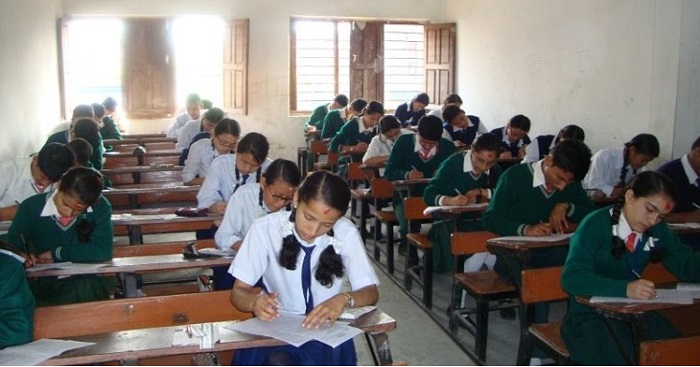
The entire preparation of this year Secondary Education Examination (SEE) has been completed. The examination will be started by 8 am on Sunday (March 24, 2019) morning. According to the examination controller Bishnu Adhikari, the SEE exams of this year will be participating in the examination of the total four hundred seventy-five thousand candidates from across the country.
Out of the candidates, two hundred thirty-six thousand, four hundred forty-fives are girls and two hundred thirty-eight thousand, five hundred fifty-eights are boy’s students. There are one hundred thousand, six hundred two students have been participating from Province No. 3 (highest Point). Similarly, 35 thousand 624 candidates are participating from the Karnali Province.
Similarly, from the Province No. 1 to 83 thousand 818, from Province No.2 to 70 thousand 518, 48 thousand 63 from the state of Gandaki, Province No 5 to 76 thousand 9 83 and 53 thousand 972 candidates from the Sudurpaschim Province.
| Province | No. of Students |
| Province 1 | 83,818 |
| Province 2 | 70,518 |
| Province 3 | 100,602 |
| Gandaki Province | 48,063 |
| Province 5 | 76,983 |
| Karnali Province | 35,624 |
| Sudurpaschim Province | 53,972 |
In the examination, a total of 969 examination centers have been set up across the country and one thousand 969 center heads, three thousand 167 co-chairs and 29,535 security personnel will be organized and the examination will be held from 8 am to 11 pm.
Chairman of the National Examination Board, the State Government, Prof. Dr. Chandramani Poudel said that the first time after the country went to federalism, management of SEE examination, operation, monitoring, answer book and purchase of all the books.
The Board has taken responsibility for all the work of examination management if the Province government will not be able to publish the immediate result. In order to manage the examination, the provincial government has appointed the Ministry of Social Security and the Education Development and Coordination Unit constituted the Co-ordination Committee. Last year, four types of questions were asked.





